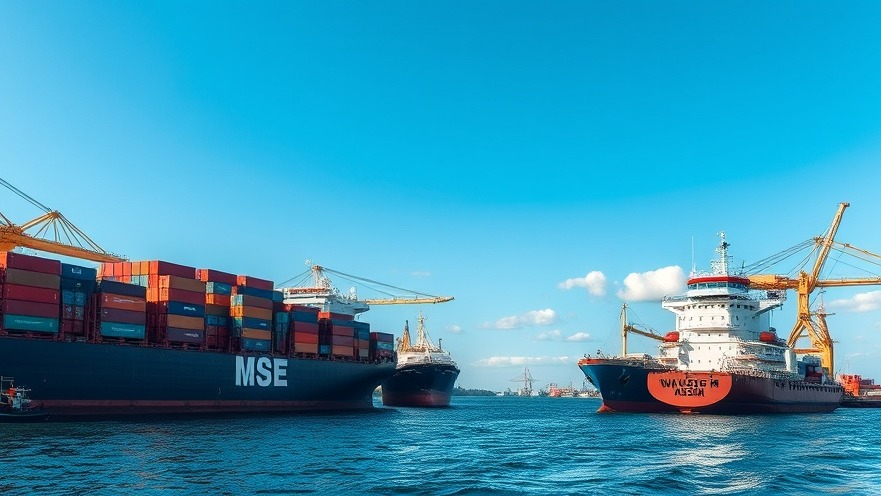
Understanding DDP Shipping and Compliance Risks
In the fast-paced world of international trade, Delivered Duty Paid (DDP) shipping offers an appealing proposition to businesses looking for a streamlined import process. The seller is responsible for all costs associated with transporting goods, including customs duties and shipping fees, until they reach the buyer's doorstep. However, while this arrangement simplifies logistics, it conceals significant risks—particularly when it comes to unpaid tariffs.
Many franchisors might view DDP shipping as a hassle-free way to import products for their franchisees, ensuring consistency and efficiency across multiple locations. But understanding the potential pitfalls of unpaid tariffs is crucial to safeguarding business finances and regulatory standing. Non-compliance can lead to severe penalties, including fines and seizures by customs officials, which can disrupt operations regardless of your franchise's size.
The Importance of Tariff Compliance
At the core of DDP shipping is the obligation to pay the appropriate tariffs. Failing to do so can result in unexpected costs that can strain a franchisor’s budget. Tariffs on imports vary widely, and with changes in trade policies and import regulations—like the recent elimination of the $800 duty-free exemption for certain low-value imports from China and Hong Kong—franchisors must stay informed about international trade laws and tariff updates.
For instance, the changes that took effect on May 2, 2025, specifically affect businesses that routinely import from these regions. For franchisors managing relationships with multiple suppliers, it's imperative to ensure that all customs duties are accounted for to prevent unauthorized charges that could diminish profit margins across franchise locations.
Strategies for Mitigating Tariff Risks
To navigate the complexities of DDP shipping successfully, franchisors should adopt a proactive approach to compliance. Here are several strategies to mitigate tariff-related risks:
Conduct Regular Compliance Audits: Regularly reviewing trade compliance can help identify areas where cost-saving opportunities may exist and ensure full adherence to customs regulations.
Educate Franchisees on Tariff Implications: Providing training for franchisees about DDP shipping and its complexities can empower them to make informed purchasing decisions and maintain compliance.
Leverage Technology: Utilizing the latest compliance management software can streamline tariff calculations and maintain clear documentation for all shipments.
Counterarguments: Is DDP Always Worth the Risk?
While many franchisors may favor DDP shipping for its convenience, it's essential to weigh the benefits against potential risks. Some may argue that DDP enhances brand consistency and operational efficiency. However, it’s also critical to consider alternative methods of shipping that could offer a safer and possibly more cost-efficient approach.
For example, using a Free on Board (FOB) shipping method places more responsibility onto the buyer but may also allow for better control over shipment costs and tariffs. Engaging in open discussions with franchisees about these options could lead to smarter, more risk-averse logistic strategies.
Future Trends in Import Compliance
Looking ahead, the landscape of international trade and compliance is poised for significant changes driven by both technological advancements and shifting global trade dynamics. Franchisors should gear up for an environment that demands greater transparency and adaptability.
Emerging tools such as artificial intelligence and blockchain can help streamline compliance processes, reduce the likelihood of errors, and provide robust documentation, shielding businesses from potential non-compliance issues. Staying ahead of these trends will not only ensure regulatory compliance but also solidify a franchisor's competitive edge.
Conclusion: Take Action to Secure Your Franchise
Understanding the complexities surrounding unpaid tariffs under DDP arrangements is no longer optional for franchisors. Mitigating risks associated with customs duties involves a commitment to compliance, awareness of evolving regulations, and an open dialogue with franchisees. As you navigate these waters, consider assessing your current practices and explore how enhancing compliance processes can lead to operational excellence. Schedule a call with experts to ensure your shipping practices align with current laws and to protect your financial interests.
 Add Row
Add Row  Add
Add 




Write A Comment